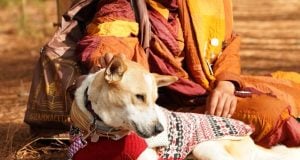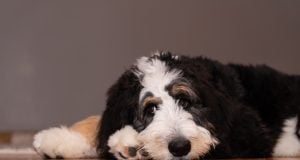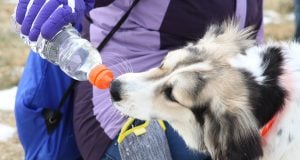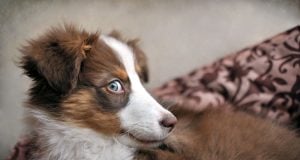
Table of Contents
Did you know that the Boston Terrier is nicknamed the “American Gentleman” because of its tuxedo-like coat and refined, friendly demeanor?
Despite its small size, this breed is renowned for its large personality and historical significance as one of the first American-developed dog breeds.
In this article, we'll talk about everything you need to know about Boston Terriers, including their:
- Origin and history
- Physical traits
- Temperament
- Health concerns
- Care and training
- Living with a Boston Terrier
Let's begin!
Boston Terrier Overview
| Trait | Details |
|---|---|
| Breed Group | Non-Sporting Group |
| Origin | United States (Boston, Massachusetts) |
| Size | Small – typically 12 to 25 lbs and 15 to 17 inches tall on average |
| Lifespan | 11 to 15 years |
| Coat Type | Short, smooth, and fine |
| Coat Colors | Brindle, seal, or black with white markings (tuxedo-like appearance) |
| Activity Level | Moderate – enjoys walks, playtime, and mental stimulation |
| Exercise Needs | 30–60 minutes per day |
| Temperament | Friendly, affectionate, intelligent, good with families and other pets |
| Trainability | High – eager to please and responds well to positive reinforcement |
| Common Health Concerns | Brachycephalic syndrome, eye issues (corneal ulcers, cataracts), flatulence |
| Notable Feature | Distinct tuxedo-like coat and expressive, large, round eyes |
| Good for Apartments? | Yes – adapts well to small spaces |
| Unique Fact | Nicknamed “The American Gentleman” due to its refined appearance and manners |
History and Origin of the Boston Terrier
The Boston Terrier is one of the oldest dogs bred in the United States, dating back to the 1800s.
As their name suggests, they originated in Boston, Massachusetts. They were sired by an English Bulldog-White English Terrier mix named Hooper's Judge and a white Bulldog-type female named Burnett's Gyp.
Boston Terriers originally weighed 44 pounds or 20 kilograms, but through selective breeding over the years, the once-bulky fighter became the small, sweethearts we know today.
Before being known as the Boston Terrier, they were called “Round Head” or Round Head Bull and Terrier until 1891, when they were renamed in honor of the city where they were developed.
The Boston Terrier Club of America was also formed in the same year and recognized by the American Kennel Club in 1893.
This breed is Massachusetts' official state dog, and consistently ranks in the AKC's top 30 most popular dog breeds.
RELATED: From Sea to Shining Fur: Meet America's 20 Most Iconic Dog Breeds
The Boston Terrier Characteristics
Physical Traits
Boston Terriers are small dog breeds, weighing approximately 12 to 25 pounds and standing 15 to 17 inches tall from the withers.
They have a smooth, short coat, which makes them fairly easy to groom.
The usual color patterns found in Boston Terriers are brindle, black, and seal with white.
Bosties are brachycephalic, which means they have flat faces and pushed-in noses. Their eyes are round and large, and their ears are erect and naturally pointed.
You might get confused and mistake them for French Bulldogs, as they share many similar physical traits.
But in comparison, Boston Terriers tend to be taller and leaner than Frenchies, and their ears are more pointed rather than the rounded, bat ears of the latter.
Frenchies also come in a wider variety of colors than Bosties.

Temperament and Personality
Boston Terriers are a friendly, affectionate, and sociable bunch. They are not called the American Gentleman for nothing!
They make great companions for the elderly and are gentle with children and other pets as well. Their playfulness makes them a joy to care for.
Because they are smart and eager to please, Bosties are easy to train, especially with positive reinforcement.
However, each individual dog can be different.
Some Boston Terrier owners report that their dogs can be a bit stubborn, possessive of their toys or food (resource guarding), and can be too reserved or aloof with strangers.
Although they're not barkers like other dog breeds, they still tend to bark excessively, especially when too excited or bored.
Early training and socialization can help prevent these negative traits in your Boston Terrier.
RELATED: The Puppy Socialization Checklist
General Care for Boston Terriers
Grooming
Like all dogs, Boston Terriers also require regular cleaning and grooming, but not as intensive as other breeds need.
Bosties are low-maintenance breeds, thanks to their short, single coats.
Although they're moderate shedders, brushing once a week may be sufficient. Bathing once every few weeks or once a month is okay, unless they get dirty from their activities.
Don't forget their dental health, too.
Daily brushing of their teeth is necessary to prevent tooth and gum problems from occurring. Dental treats, water additives, and chews will also help maintain their oral health.
Their nails also need regular trimming. It's recommended to cut or file their nails every 2 to 3 weeks, depending on their level of activity.
Exercise & Training Needs
The reason why Boston Terriers may be perfect for couch potato owners is that they are not high-energy dogs.
They don't require as much exercise as other larger, more active dogs. Thirty minutes a day of walking, play sessions, or any light exercise is enough.
If the weather is extreme outdoors, indoor games or other activities that keep them busy and stimulated will also work well.
Boston Terrier puppies will do well when trained early with basic commands.
Potty training might take a bit longer than average because they can be stubborn, but with positive reinforcement, gentle correction, and time and patience, they should do well.
It's also important to expose them to different environments, people, and other pets early on, as this will help minimize their stubbornness and separation anxiety.
RELATED: How Much Exercise Should My Dog Get?
Diet and Nutrition
 A typical healthy Boston Terrier requires a balanced, small-breed-specific diet to maintain their overall health.
A typical healthy Boston Terrier requires a balanced, small-breed-specific diet to maintain their overall health.
It's best to feed them a high-quality kibble or a homemade meal recommended by your veterinarian.
In general, a Boston Terrier puppy will require 1/2 to 1 cup of food per day, split into three meals.
An adult dog needs 1 to 1.5 cups of food, split into at least two meals, while senior dogs might benefit more from wet food.
The serving size still depends on your dog's activity level, age, and any existing health conditions.
Make sure to strictly monitor their food intake, as Bosties are prone to obesity.
RELATED: Best Dog Food for Boston Terriers: 9 Vet-Recommended Brands
Boston Terrier Common Health Concerns
Boston Terriers are generally a healthy breed. When properly cared for, they will live well and happily until they're 11 to 15 years old.
However, there are still some potential health issues you should watch out for, which include:
- Brachycephalic Obstructive Airway Syndrome, a.k.a. BOAS (overheating and struggling to breathe, especially in hot/humid weather)
- Eye issues like corneal ulcers, cataracts, and dry eyes.
- Skin allergy or atopy
- Patellar luxation occurs when the kneecap slips out of place
- Idiopathic epilepsy or seizures are believed to be caused by genetics
- Digestive problems, food sensitivity, and flatulence
RELATED: 12 Common Health Problems for Small Breeds
Is the Boston Terrier Right for You?
Now that we've covered the basics of what you need to know about the American Gentleman, the million-dollar question is, is a Boston Terrier the right breed for you?
Due to their compact size, Bosties are ideal for homes with small yards or apartment living.
They will also thrive in a home with a lot of human interaction. This will help them be more playful and friendly, even to people or animals they have never met before.
They are also not considered highly independent dogs.
They can be left alone for a reasonable amount of time. Still, when left for too long by themselves, they can develop separation anxiety and will resort to excessive barking or chewing your furniture.
Weigh the pros and cons of owning this breed in the following table:
Are Boston Terriers hypoallergenic?
While Bosties don't have a double coat, they still shed moderately, so no, they are not considered hypoallergenic.
Additionally, there is no 100% hypoallergenic breed, as all dogs shed to varying degrees.
Do Boston Terriers get along with cats?
Terriers are notorious for being chasers, especially of creatures smaller than themselves.
However, you'll be glad to know that Boston Terriers generally get along well with cats, especially if they were socialized and introduced to them at a young age.
If ever you see one running after a cat, it's more likely a playful chase rather than a hunt.
RELATED: 8 Ways to Make Your Dog and Cat Get Along
Do Boston Terriers bark a lot?
No, Boston Terriers generally don't bark a lot.
While they can bark loudly, they will only do so when necessary, not as a force of habit.
Are Boston Terriers good for first-time dog owners?
Oh, yes.
First-time dog owners will find a Boston Terrier manageable, not only because of their size but also because of their affectionate nature and relatively easy training.
Boston Terrier: A True American Gentleman!
Boston Terriers are a charming, low-maintenance, and affectionate breed ideal for families, seniors, and individuals alike.
Their loyalty and gentle nature make them one of the most well-rounded small breeds!
Have a Boston Terrier at home? Share your pup’s quirkiest habit or cutest moment in the comments!
And don’t forget to check out our other recommended articles linked below.

















